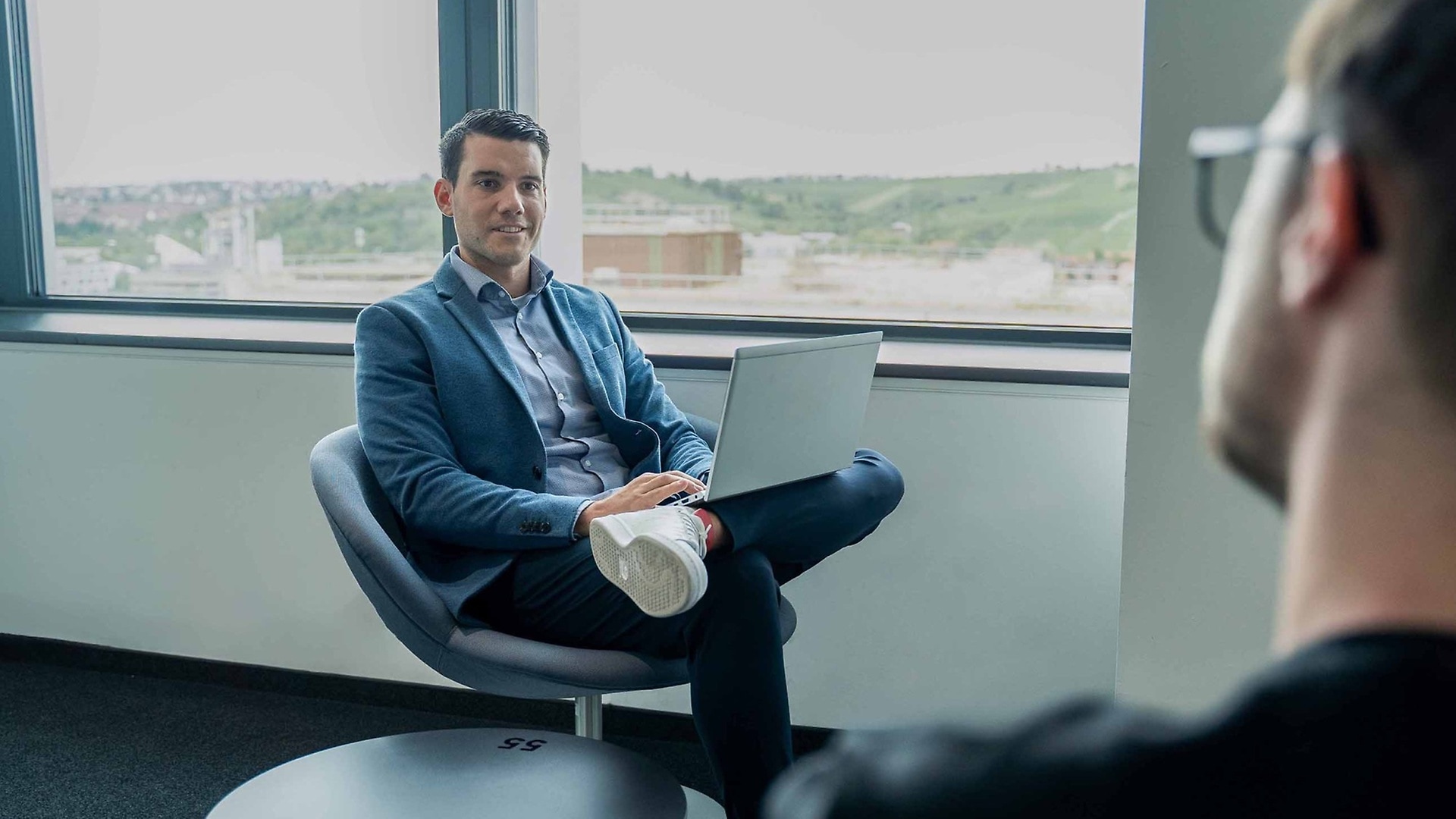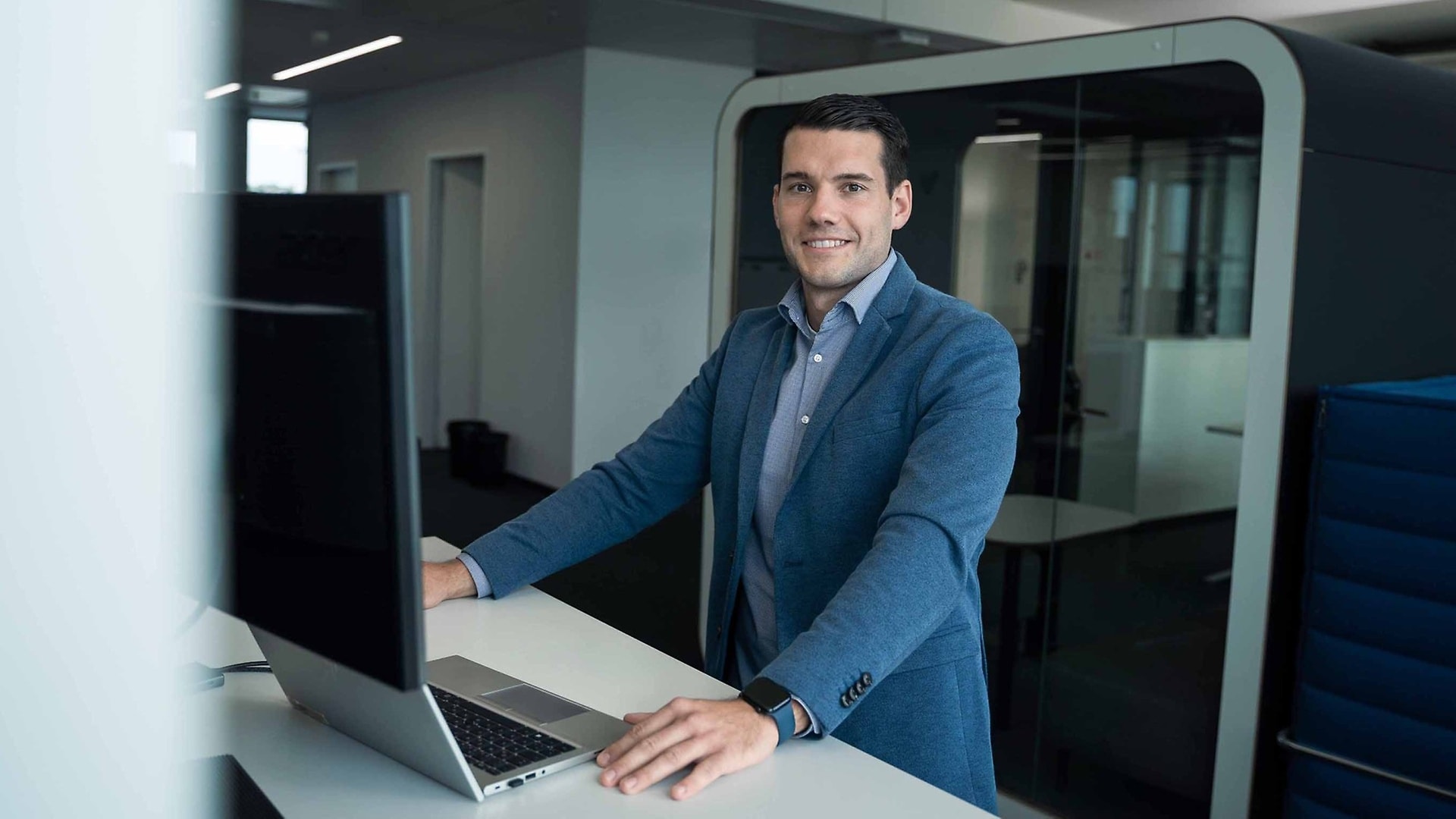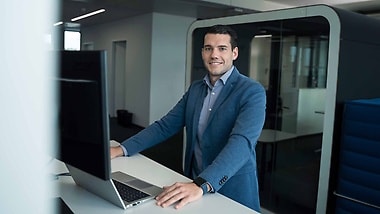How can we picture your team?
Our team includes everyone from data analysts to conventional project managers. One third focuses on data management, another third is made up of product owners, and the rest – myself included – deal with the topics of strategy development, innovation and communication. The team consists of equal numbers of men and women, including English-speaking employees from India and China.
And how might we picture all these people working together?
We work together in an agile and hybrid way in Stuttgart, meeting there at the office regularly every fortnight, and beyond this we also meet on-site if the project requires this. So, depending on requirements, our cooperation is flexible. A lot can be done digitally, but not everything. This makes the constant exchange of information regarding our issues all the more important in order to keep an eye on the bigger picture. I also work on interdisciplinary projects together with a wide range of IT specialist units. I find the variety of our tasks particularly exciting here.
Since March 2022, you have been taking part in the Mercedes-Benz Academic Programme and working towards your MBA in Digital Business, Management & Leadership. How extensive is this professional training?
It's a classic master's degree that takes four semesters. I'm currently in my fourth semester. Fridays from 4 pm and Saturdays are usually lectures or exams. During the week, I meet up with fellow students in the evenings to help prepare presentations, for example. On average, I invest 16 to 18 hours a week in the study programme. In the evenings, I don't sit in front of the TV, but work on a presentation or study. It is also about lifelong learning. For me, standing still is a backward step. My manager has also supported this plan from the beginning. The opportunities for further development here are many and varied. Added to this, you have the excellent working environment, from our office and work facilities to the possibility of working from home.
,xPosition=0,yPosition=0.5)




,xPosition=0.5,yPosition=0)